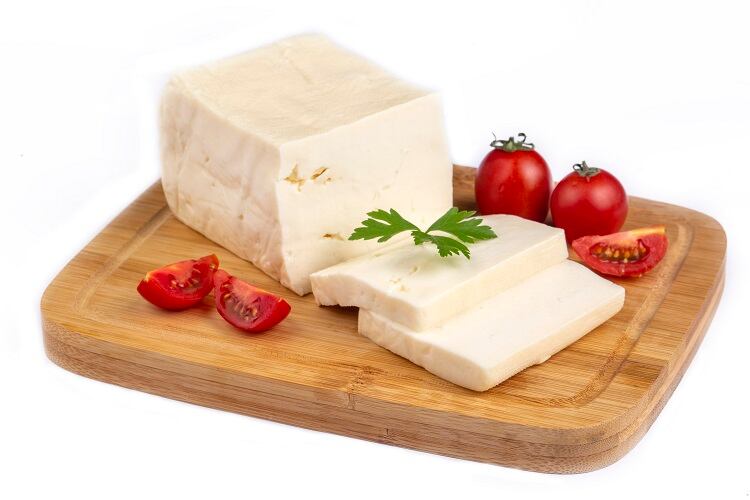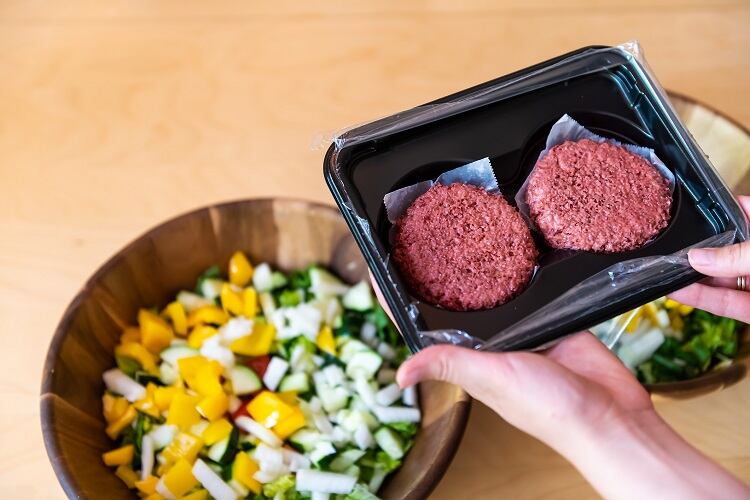Turkish legislation already states that the term ‘cheese’ cannot be used to describe dairy-free alternatives, for fear of misleading consumers.
Now, the government has taken one step further to ban the production of vegan cheese alternatives.
In the 19 February edition of the Official Gazette of Turkey (T.C. Resmî Gazete), the government stated that “products that give the impression of cheese cannot be produced using vegetable oil or other food ingredients”.
Last month, producers of vegan cheese reported they could no longer sell their products in Turkey and that factories would be inspected.
The move has been condemned by plant-based and animal rights advocates, including the Vegan Association Turkey (TVD). which has filed a lawsuit against the Ministry of Agriculture and Forestry.
What does this ban mean?
The new ban means that plant-based cheese alternative products cannot be produced to look like cheese.
For TVD, the wording of the legislation – which the body suggested lacked clarification – is problematic. “The fact that the necessary clarification has not been made even about the similarity criteria, which is the basis of the said ban, creates an open-ended area of pressure and action for the inspectors/punishers operating in this field.
“With this new substance, which has no consistent or plausible basis, stopping vegan cheese production and recalling vegan cheese from the market constitutes a violation of both national and international law.
“According to the Department of Food Businesses and Codex within the Ministry of Agriculture and Forestry, whom we interviewed, even the reminiscent of cheese in vacuum packaging can be considered a ‘scam’ on its own.”
TVD is working to overturn the ban, which it believes impinges consumers’ ‘freedom of choice’ and undermines production and trade.
“We are determined to use all solutions to the fullest against these obscure prohibitions, which are far from being convincing for producers and consumers and have been created on some unfair grounds.”
Efforts to overturn legislation
In response, TVD has filed a lawsuit against the Ministry of Agriculture and Forestry for the annulment of the regulation article, in light of the ‘grievances’ experienced by vegan consumers and vegan cheese producers.
At the same time, the campaign group has started a petition directed at the Ministry, the General Directorate of Food and Control, and the Department of Food Businesses and Codex.
The petition was kickstarted on 17 June 2022 when a vegan cheese producer reported the new legislation had blocked sales of its products. Less than one month later, it is on the brink of achieving its target of 5,000 signatures.
Others have also condemned government decisions to impose production and labelling rules on vegan alternatives.
ProVeg International – a ‘food awareness’ charity that aims to halve global consumption of animals by 2040 – is concerned that imposing such regulations will hinder progress towards environmental sustainability.
“Plant-based foods are a vital key to solving the climate crisis as well as ensuring economic growth,” said Jasmijn de Boo, Vice-President of ProVeg International. “Many meat and dairy companies themselves know this, which is why they are investing in both plant-based and animal-based foods, and in some cases switching to plant-based foods entirely.”
The VP continued: “We can no longer continue does this path as we will destroy vast tracts of our planet in an attempt to provide a diet based on animal agriculture to the 10bn people who will populate the Earth in 2050.”
A growing cohort of ‘meaty’ bans
Turkey’s government joins a growing number of policymakers outlawing ‘meaty’ or ‘dairy-like’ terms for conventional animal-based products – a practice ProVeg described as ‘draconian’.
In the EU, a 2017 ruling by the European Court of Justice implemented a ban on the use of dairy names such as ‘milk’, ‘butter’, ‘cheese’, and ‘yogurt’ for purely plant-based products – with the exception of coconut milk, peanut butter, almond milk and ice cream. Three years later, in 2020, the European Parliament voted against a ban on ‘meaty’ terminology for plant-based alternatives such as ‘burger’, ‘sausage’ or ‘steak’.
Last month, South Africa banned meaty names for vegan products, meaning that ‘veggie biltong’ and ‘plant-based meatballs’ will no longer be marketable.
And last week, France became the first country in the EU to ban the use of words like ‘steak’, ‘bacon’ or ‘sausage’ from being applied to plant-based foods.
Restrictions are also being considered in Belgium, which could mean ‘vegetarian mincemeat’ and ‘plant-based chicken pieces’ are off the table.
“These regulations are counter-productive and based on misunderstandings,” said ProVeg’s de Boo. “Some laggards in the livestock industry are pushing for these regulations, or protesting against measures to curb nitrogen emissions, such as in the Netherlands and Belgium because they are desperately clinging onto the past when both the global population – and meat production’s impact – was much smaller.”




